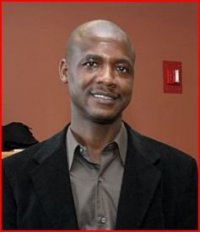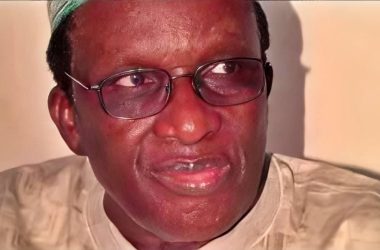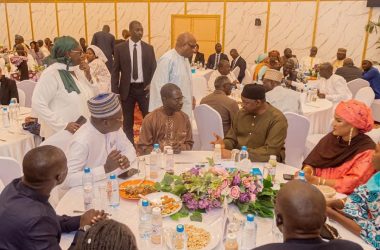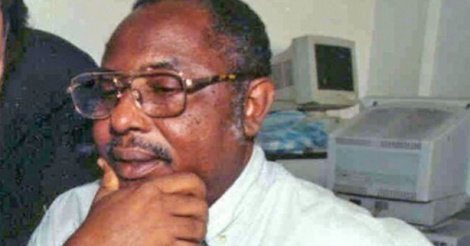
Scholars have debated the question of the state and governance in Africa without breaking any new ground.
The post-colonial African leaders for over fifty years have grossly failed in changing the character of the colonial state as a “coercive force” into authority and domination.
Critical perspectives have rightly argued to debunk blaming Africa ‘s underdevelopment solely on colonialism while Japan which was the center of America ‘s imperialism and countries of South East Asia have developed while their African counterparts have failed to follow suit
One of the key challenges of African modern states has been leadership. The state -leadership interface stems from the fact that government is an element of the state while leadership is the process or art of governing. The state apparatus is multi -functional depending on the use to which it is deployed.
The state variously could be purveyor of territorial integrity, a protector of the lives and property of citizens or a destroyer of same. In its generic essence, therefore, the state derives its dialectic from this inherent capacity for combining the powers of regeneration and destruction which is embedded in governance.
The narrative that we should be engaged in is the importance of leadership to the change management process is underscored by the fact that change, by definition, requires the creation of a new system and then institutionalizing the new approaches.
Organizational survival, as argued, depends on the ability to effectively respond to change. We contend that the creative, imaginative, empathetic, and risk-taking leader is the center of the transformation process that fosters organizational viability.
We argue that most of those occupying leadership positions in African states are incompetent and lack the moral and intellectual authority to manage and man the affairs of the state thus undermining the achievement of state capability.
We place transformational leadership as the key to the transformation of African states and contend that transformational leaders may not be the universal remedy for organizations in need of turnaround.
We observe that while transformational leaders may have the appropriate leadership style to affect change, perhaps team-led strategic change would be better oriented to future public administration and management needs in rapidly changing and complex environments.






A “Leader” is a guide, he or she has vision and goals. He wants to LEAD his people to a place of prosperity and success. There is a problem with us, our people-Africans. For the most part we worship MONEY and therefore driven by GREED, we spend valuable time plotting how to steal and we fail miserably at imaginative thinking and creativity. When people steal they don’t and can’t think. Our leaders are chosen from those who have little to loose and everything to gain from seizing power. The psychopaths, the crooks, Rapists and Killers pulled from the barracks or from the gutters, desperate souls that will do anything for power and money.
Africans kill Africa, ALL of us, Leaders and Citizens.
From Nigeria that mismanaged the opportunity to be the greatest in Africa to our smiling and beautiful coastal Gambia the common thread remains the same. GREED. In my life I have been extremely blessed and lucky and can honestly say, I have no needs but one, to see my country prosper and to see Gambians have peace and happiness, but I am afraid that may not be. Not just because of Barrow or men and women that call themselves President but because of ALL of US my country men and women. The future, our future and our children future lies in today’s narrative.
God Bless The Gambia.
If I was to apportion blame for the condition of the African countries in order today, I would do it as follows:
1. The African People, simply because power is supposed to belong to us. Elections/uprisings to remove entrenched dictatorships in parts of the continent, including our own, have proven this to be the case.
2. The Leadership, because they are the ones charged with managing our resources and protecting our interests, but they have failed us miserably. The reason, at least partly in my view, is that too many people seek political leadership without a clear understanding of the root causes of the continent’s economic problems, and thus, unable to take any measures to address the them. Even worse, is the fact that they settle down comfortably to pursue the very policies that are the causes of the problem.
3. Global Capitalist System, because for this system to work, it needs to have producers (of goods and services) and consumers of the same. Unfortunately for the Africans, we have been introduced into this global system as mainly producers of raw materials (for the industries of the West) and consumers of their finished products and this relationship has not changed for the past 5/6 decades, thus the story is the same: we produce and export very little (and moztly in raw form) and consume imports mostly.
Unless this relationship changes, it will be very difficult to change our situations, because even the political crises are the result of economic failings, for the most parts.
Dr Sarr & Bax, thank you guys for your brilliant analysis of the situation in Africa in general and the Gambia in particular. All I want to say is that, Dr Sarr do not despair yet, a country like the Gambia with talented and patriotic prosperous thinking intellectuals and individuals like you Doctor, Bax, Bourne, Bajaw, Jack, Natty, Pa Andrew Jallow and others can break this cycle and build a better future for generations to come. Each one of us has to endeavor to positively influence as much Gambians as we could. The Gambia is a small country, population wise and geographical, therefore it should not be difficult to develop the country. Bax, I think African leaders are obsessed with big projects like massive roads without enough cars to drive on them, big hospitals with no Doctors or enough medications and no provision for maintenance. The Gambia should break this cycle and concentrate on building a strong political, institutional, economic and governance foundation, which future generations can build upon to make the Gambia a develop nation. These are not tangible things but they are what will change the country. Our leaders should stop worrying and thinking that people will accuse them of not doing any development without big structures. Because if we leave strong foundations for future generations, they will recognise it and give us credit for it. In short they should stop being short sighted and think of long term projects.
I agree.
You see,,,,We know all the problems and we know all the solutions. But we also know the weakness of Democracy lies in political process of selection, garnished to lack of education in evaluating what is in a manifesto, that would bring about economic and social mobility and progress.
Solve the energy deficit.
Train the operatives.
Reduce imports by building home manufacturing capability.
Offer incentives for international business and venture capitalists.
Introduce trade tariffs on speculative second hand imports.
Create business advice centres with business start up grants.
Reduce personal taxation.
Introduce a minimum wage.
Offer special tax relief on exports.
Revamp education,with a universal curriculum and social democratic education.
Abolish VAT and replace with purchase tax.
Introduce educational and vocational test for all Presidential candidates.
Audit all banks annually and encourage affordable mortgages, Credit score system Business loans and overdrafts.
To name a few.
Mike, in March I wrote an open letter to the President in which I stress the importance of making sure each an every Gambian or anyone resident in the country has a postal address, because I believe it is the first stone to be laid in nation building. Mike, you and I in the West knows the role that postal addresses played in developing UK, USA and other European countries. From security control measures to businesses being able to sell their merchandise to people and credit score system to make borrowing and lending easy between businesses, private individuals and the banks. Postal address is like a stem cell, everything that can positively contribute to the development of a nation relies on it.
Postal Addresses and mail delivery systems? Don’t even go there Buba, because it is upsetting to see that 52 years after independence, we are still without these. It is the clearest demonstration of a complete lack of vision in our post independence leadership. I know they tried to do street names in the KMC around the 1980s, mainly due to criticism from PDOIS, about the need for these to have a credible electoral register. But it was so poorly and half heartedly done that it had very little impact on the people.
Look at the states of our settlements, for example (major & minor). No properly mapped out roads; no public parks; no spaces for shopping centres; not even enough space for pavements along roads. And we’ve had the Physical Planning Department all along.
Bax, I guess we should start a campaign to pressure Government into taking action on the matter now. You and I know that everything in the UK and Europe evolves around postal address. It baffles me that African Governments do not see this as essential for development. You are very right we have Physical Planning Department all this years but one sometimes wonder what they have been doing all this years. The Ministry responsible for communication seems to focus only on road telecommunications forgetting the most basic but essential one, postal address.
Buba…Yes that is a very very good idea. Now why didn’t I think of that ? You see Jollof ” Think Tank”..is miles ahead !!!
No Mr Bourne: The answer is not in the cube….{ economics is not that difficult } It is in the detail.
I put some thoughts online {suggestions} and almost immediately Buba Sanyang nails a fundamental problem on the head. The simple,,,” post code.”
We then have excellent and detailed history and analysis from Bax and Bajaw Yourself and others who understand the issues I mentioned and come up with a solution. This post code issue is a fundamental pillar for change and progress. Also it is so simple. In business or wealth creation or productivity, it is always ..”simple” that works best. Jollof Think Tank>>>has always been here. Perhaps it is now being recognised as valuable by even yourselves.???
Good thinking boy’s.
I fully concur with Dr Sarr’s statement that, “A “Leader” is a guide, he or she has vision and goals”.
However, a good leader must also be capable of articulating the vision(s) and goals in the form of a cultural shift aimed at bringing competent folks on board the ship to share and move the vision forward. Just as it takes a team to move the ship.
The leader(s) must also be capable of spotting talent and potential within and outside of government, keep them motivated long enough to undertake what may appear to be an insurmountable task(s) at the outset. That’s a leader’s primary task.
In the endeavor to move The Gambia forward, a good dose of self-confidence, a positive outlook and good old HONESTY AND INTEGRITY will help a lot. Traits that have been eroding away in our Gambia from when young college educated Gambians started coming back home to fill ranks that were previously held by colonists (1965-2017).
We’ve grown up witnessing structures crumbling, budgets pilfered, projects plundered for what they were worth, misplaced priorities, nasty party politics and plain old DIRIMOCRACY starting at the helm. Thanks to us GAMBIANS, largely driven by greed, for putting the nation in this predicament.
Under the watch of lunatic, Yaya Jammeh, dressed in the flowing white garb and his JAKUTUMBAY retinue of enablers and opportunists, that mastered the art of corruption from the PPP playbook, The Gambia has been set back for years. It is therefore imperative that WE Gambians work doubly hard to see the desired outcome. Let’s act different from Nigeria to ensure that WE bring back resources LOOTED from our coffers. I may be the lone preacher here but I am confident that I share similar sentiments and beliefs with umpteen numbers of fellow Gambians. Especially Gambians in the diaspora!
I must add here that not everyone in the service of our nation is a bad egg but I must say that, unfortunately, there’s a preponderance of rotten eggs within and outside of the system. Thus the demand for a mental, religious and socio-cultural shift in The New Gambia to weed out the bad eggs.
WE know the answers to what appears to be a Gambian conundrum because frankly, WE hold the answers now just as WE have held the answers for generations but chose to act in our own selfish interests!
I see in Adama Barrow, that many label slow in thought and action, a decent man that offers promise and potential that can be realized only IF Gambians will lend a selfless helping hand.
WE CAN be wealthy and prosperous but ONLY when we Gambians collectively choose to WORK sincerely and dedicatedly, TO GET THERE!!
Bourne; My bets today were dismal, too many second places. But hey, am not a complainer but a retainer.Hence I agree with Rudyard Kipling..” to treat winning and losing as the same imposters “To throw all on the turn of the dice.”””””
But in the most basic of terms it is only a profit and loss account.
Isn’t that the sum total of a life ?
I would suggest a good song would be by Wink Martindale ” deck of cards “
Bourne my hilarious comedic friend Not and never gloomy peering through my binoculars at Black Beauty appearing out of the foggy winter mist…with no jockey !
Not gloomy…but funny in the extreme …ha ha ha ha ha !!!!!
It is tough to find knowledgeable individuals on this topic, but you sound like you understand what you are talking about! Thanks